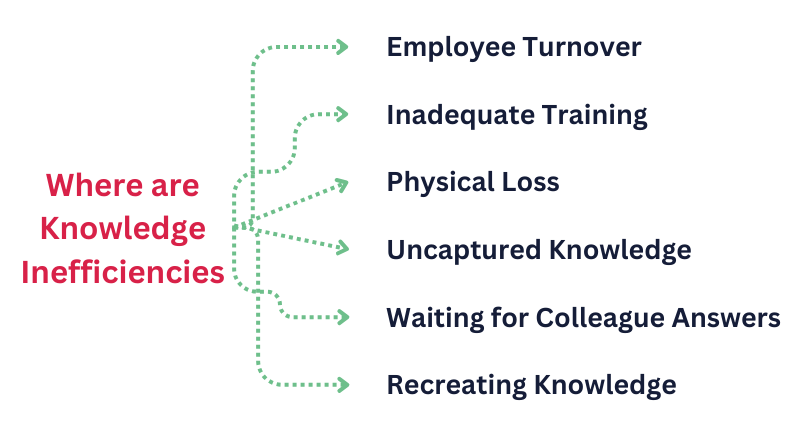In the world of knowledge and business, the importance of effective knowledge sharing can’t be overstated. But it can be hard to sell the idea of knowledge sharing without an estimated return on investment.
Let’s dive into the often-overlooked costs tied to inefficient knowledge sharing, affecting businesses of all sizes.
A Big Picture Look at the Numbers
The average large US business loses a staggering $47 million annually due to poor knowledge sharing practices.
Well, that is a significant number! But those are large businesses with many people and processes. What about the little guys?
Even smaller businesses, with just 10 employees, are bleeding $50,000 yearly due to similar inefficiencies. Not as big of a number but that is still a lot of money you don’t want to lose.
Sure, these numbers have their limitations. It was a small study before the pandemic explosion of remote work. Plus calculating the exact cost is tricky. Still, having a ballpark figure highlights the financial and employee risks of not having a knowledge plan for your organization.
Where are the Knowledge Inefficiencies
If it is so hard to measure the costs of knowledge sharing, where are these big numbers coming from? Most of the hidden costs of knowledge come in the form of employee time and productivity.
Some of the areas of knowledge inefficiency are
- loss from employee turnover
- inadequate training
- physical loss of documents and files
- uncaptured knowledge that lives in employee’s heads
- waiting for colleagues to answer questions or share information
- recreating knowledge that can’t be found

These knowledge inefficiencies cannot be reduced to zero but planning and positive knowledge culture can significantly reduce cost associated. As a bonus, it will also increase employee satisfaction and retention. Win-win!
Practical Steps for Small Players
For smaller businesses and startups, cultivating efficient knowledge processes is crucial from day one. Here are easy beginner steps:
1. Prioritize Knowledge: Identify and prioritize knowledge based on your company’s goals. Not all knowledge is equal; focus on what truly matters.
2. Document Processes: Start documenting essential processes. Having a central storage location also ensures everyone can access critical information.
3. Record Video Walkthroughs: Create that bumbling, not-my-best-work recording of your processes. Done is better than perfect and they serve as valuable training resources.
4. Envision Future Knowledge Culture: Picture the ideal knowledge culture for your organization and take measured steps to get there. A solid knowledge foundation isn’t built in a day.
Remember, you’ve got this! And for a more personalized understanding of the potential costs associated with inefficient knowledge sharing in your business, try out the Panopto Valuing Workplace Knowledge calculator. It’s a valuable tool to gauge the financial impact and tailor your strategies accordingly.